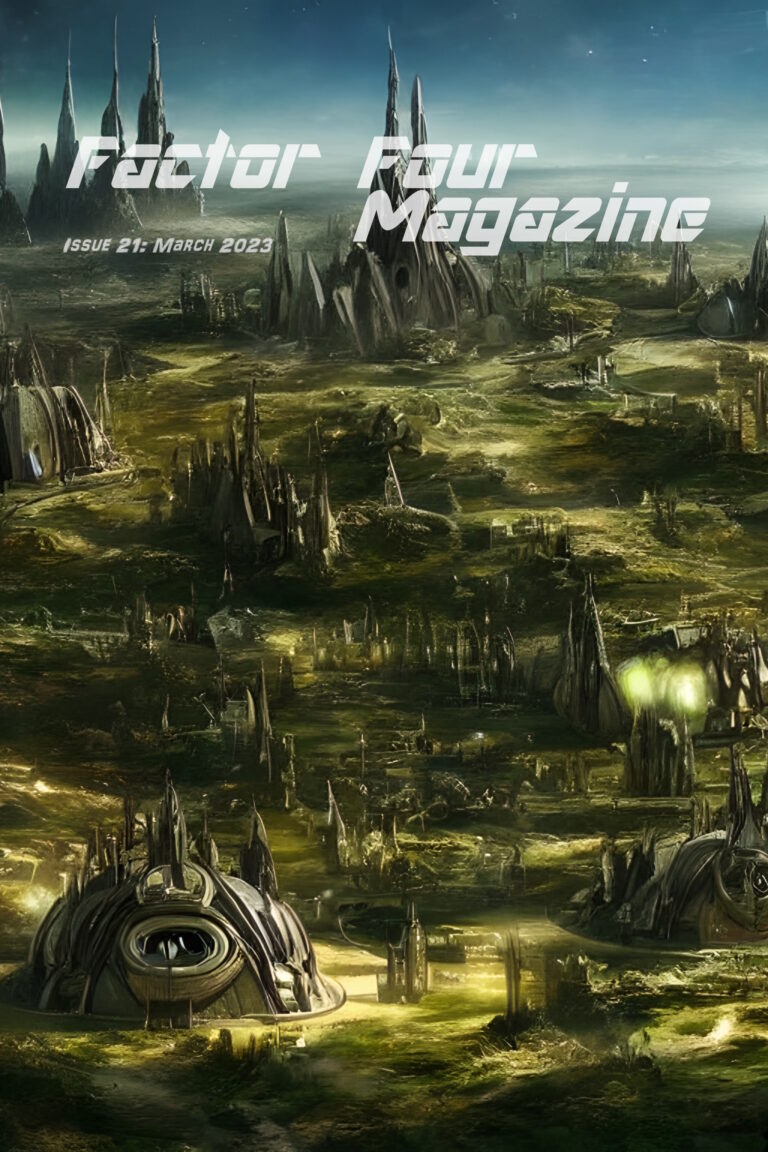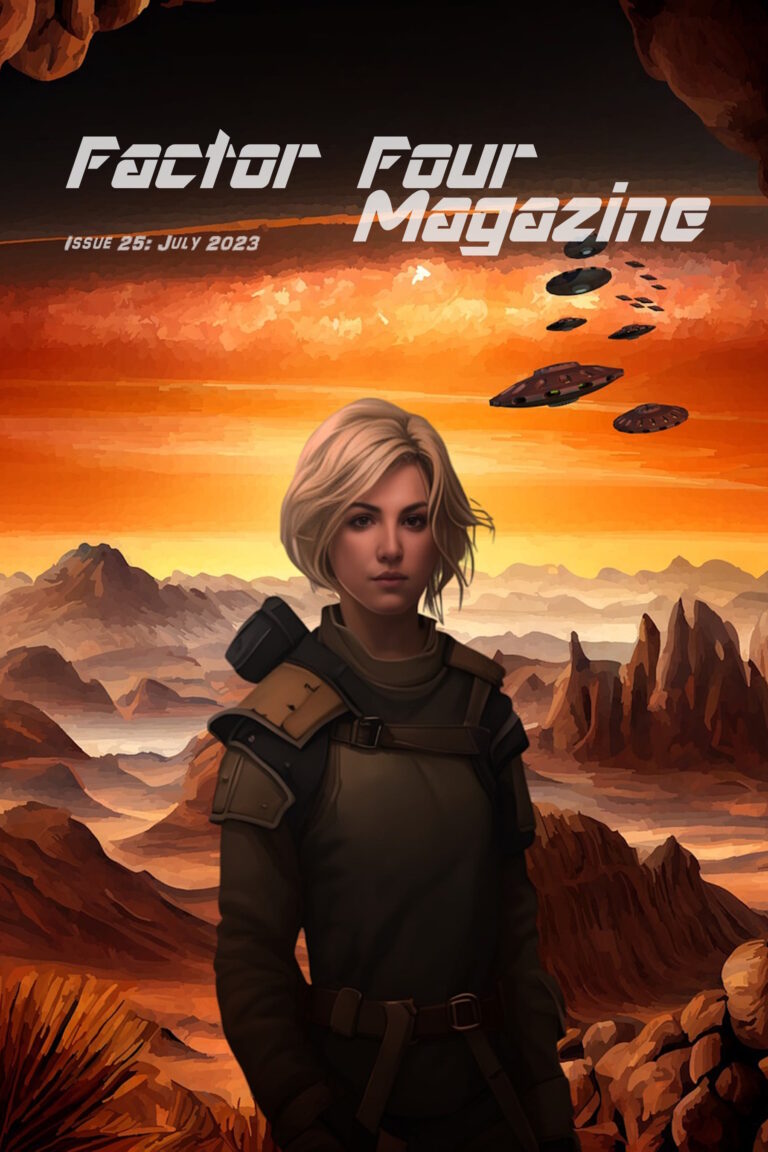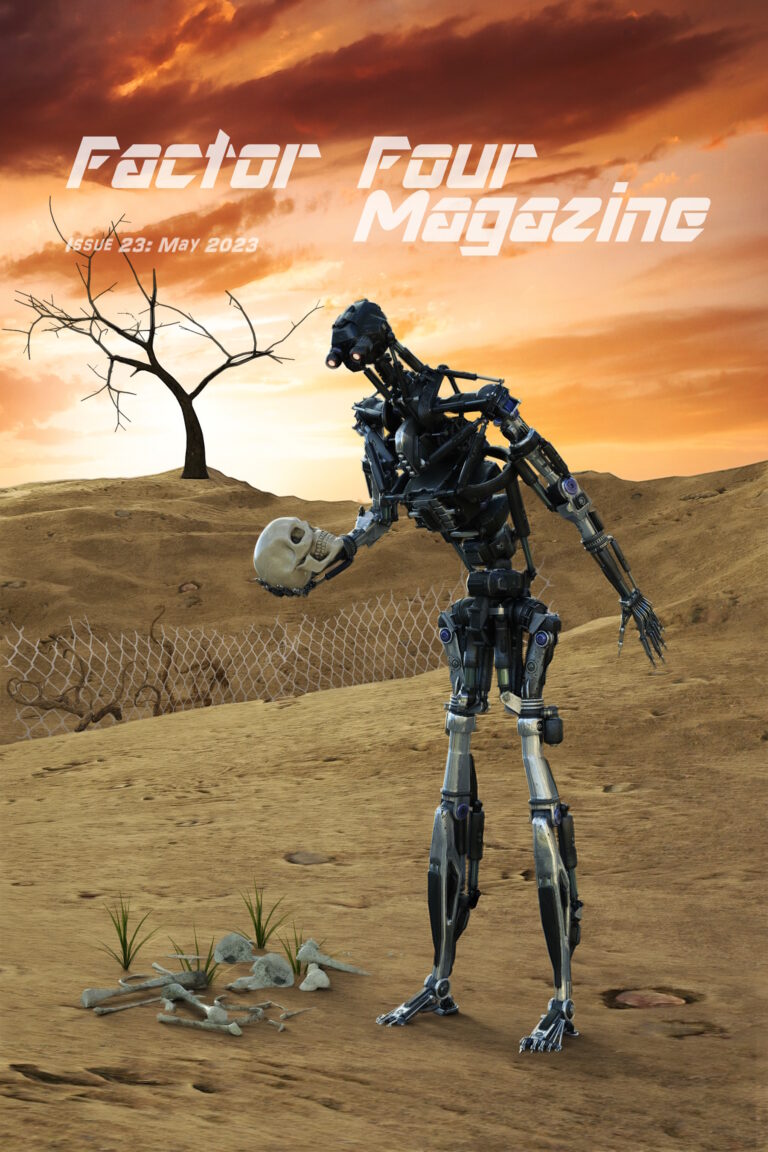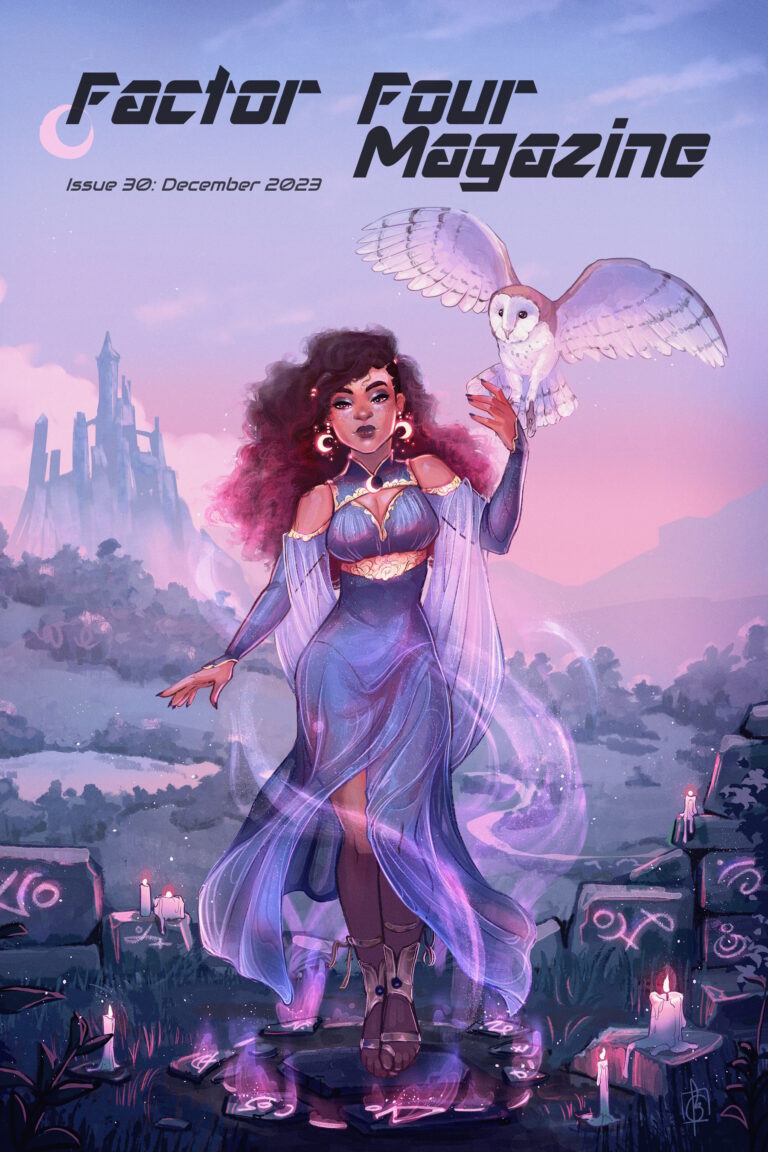In the City of the Faced by Daniel Ausema
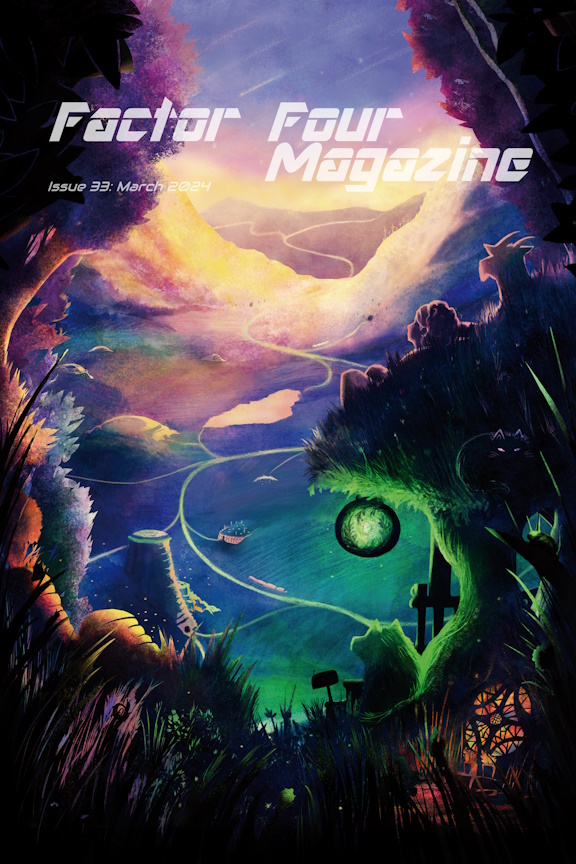
I craft my face each morning, coaxing the bees into the perfect alignment.
Or, most mornings, into the good-enough alignment. Friendly takes extra effort, and the bees aren’t having it this morning. I settle for less and head to work. The bees, once aligned, give a semblance of human skin, and they fill out my clothes with the appearance of a human body. Work’s a flurry of papers and flustered words with coworkers. Our company’s too small to split roles like we should, so I bounce between expense reports and marketing copy, numbers and words.
By the end of the day, the bees are tired. I feel one near the corner of my mouth twitching, longing to be free. I have to hold my tea mug in front of my mouth whenever someone comes near, to make it to the end of the day.
I escape as soon as I can. The local community college has a flower garden in the back of its property, against the neighborhood fences. It’s growing dark, which is when I like the garden best. I slip in and feel my shoulders relax.
Except someone else is already there. I nod and make my way to a bench, hoping they’ll leave. Until then—or it’s dark enough—my face has to stay in place. I pull up the hood of my jacket and let the bees melt into a less rigid form.
When they leave, I relax the rest of the way. The bees fly about. Some visit the flowers, but enough stay close to keep my clothing in its shape. I listen for sounds from the other side of the fences as dusk turns to twilight to night.
Then I return to my flat where my body deliquesces. The bees return to the hive that fills an entire room. And I know nothing until the next morning—my inhuman version of sleep.
My bees are sick. Which means I’m sick, a sickness that doesn’t respond to human medicines. Vet pills? Who keeps bees as pets? A bigger university might have something specialized, but that would mean travel. And revealing myself to strangers. Who knows how they’ll react?
I try some antifungal creams and power through on hope. Hope that’s thin as a paper-wasp’s nest.
It takes more effort to get my face decent in the mornings. In fact the pressures of the human form seem to worsen the disease, or at least its symptoms. I withdraw even more than usual at work, and I’m afraid some mistakes slip through. Numbers flip and words come undone, dripping like honey into meaninglessness. But it’s all I can manage. My mouth is set in an eternal grimace—it’s easier on the bees if they don’t have to perform the intricate dances that create the illusion of facial expressions. For most of the afternoon I feel the bees at either end of my lips struggling to break free.
The flower garden’s too far. I pull my hood as far forward as it goes and release the bees. I walk fast. A few straggling bees buzz around me. Bees do the same to normal people. Normal. I hope no one can tell that I’m not.
A pair of students is making out in the garden. Too engrossed to notice the person-shaped cloud of bees. Hopefully.
There’s more light than I’d like. I settle in away from the students, but that puts me close to a fence, opposite a family that’s grilling their dinner, playing outside, making lots of noise. When one of the kids shouts, “Ah, a bee!” I don’t linger. I don’t think it’s one of mine, but I leave in a rush, back to the safety of my apartment-hive.
I place an order for bee medicine, passing myself off as a beekeeper. Tied down, caring for my hives, can’t make it in just now. I forget how I worded it, but I hope it gets approved.
My face cooperates better today. The bees follow instructions without much delay, and I’m heading to work earlier than usual.
A man passes, going the other way at the bus stop. Only he isn’t a man. He’s a cloud of bees. No effort to hide, no attempt to force the bees into human shape. He walks past me, his business suit fitted and smooth, his face a cloud of buzzing. Self-conscious, I run my hands down my suit, touch the places where the bees resist the shape I want.
I have to fight the urge to run and hide.
By the time I’ve controlled myself, I realize I need to follow those bees, learn who he is. I whip around, but he’s lost to sight.
To sight, but to other senses, too?
I let one bee escape from my neck, send it ahead as I walk the way he’d gone. The bee returns, empty feet and no dance to guide me. I send another as the first rejoins.
No one noticed the man. No one reacted to his passing. Could he be so hidden from human eyes but visible to mine?
I send another pair ahead to help the search. The other bee returns with a false hair gripped in its mouthparts. The hair dissolves into pollen as soon as I’ve seen it. On the right track. I send out more pairs, set them searching.
A human swats one bee away, and I flinch. Surely he’ll follow the bee’s flight, will notice me passing through in a slipping disguise. Will call out in alarm and draw everyone’s attention to me.
He does none of that, only walks on.
I gasp, then wait for my bees to return. Cautiously, I relax my face.
I’ll still search for the other bee person. To know another like me in this city of the faced would be a relief.
But knowing I can free my body and walk the streets openly? That’s a far greater relief.
My face is formless as I head toward work.

